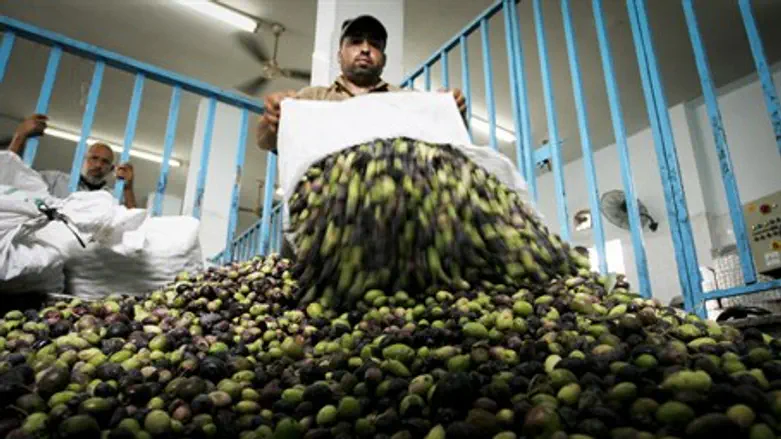
During the holiday of Hanukkah as we praise the miracle of the oil, yet new research published shed light on the damage caused by Israel’s olive oil industry. The studies show that the allegedly environmentally friendly way to eradicate the industries sewage damage is actually causing worse and sometimes irreversible damage, effecting soil fertility and causing trees to wither and die.
The Ministry of Environmental Protection said their recommended method is being successfully implemented in many European countries, adding that in these days they are examining new ways to treat environmentally friendly byproduct of the oil industry.
During production of oil using an olive press, Alpechín is made and the acid saturated with organic matter can be toxic in high concentrations.
In 2008, the Ministry banned toxic outfall discharge of wastewater treatment plants and recommended an alternative solution that was implemented in European countries: dispersion between rows of trees uprooted orchards and agricultural fields.
The Ministry of Environment praised the system, noting that the sterilized waste will serve as a replacement for pesticides in preventing germination of unwanted weeds.
However, the Environmental Protection Agency gave its recommendations before receiving results of the effect of diversification in Israel’s agricultural crop areas.
In the past five years, the Ministry of Agriculture’s research team at Volcani Institute conducted an examination of the recommended method and results indicated negative and sometimes irreversible environmental impacts.
Deputy Director of Natural Resources at the Ministry of the Environment, Alon Zask, rejected these claims and said that the studies were conducted in Greece, the largest olive oil producer in the world, which demonstrated the effectiveness of the method recommended by the Ministry.
"There are all kinds of research, but here the issue is the dosage. We recommended a quarter of the amount implemented in Europe," Zask said. "Kibbutz Revivim applied this method for ten years and everything is fine. We also take samples of the soil to see if Alpechín caused damage ".
However, a study conducted Gilat Research Center has found that barren dispersal may have adverse effects. The oil residue of organic material in the soil becomes hydrophobic (water-repellent) and damages ground water infiltration and uniformly wetting it.
High potassium levels in Alpechín causes accumulation levels that may be harmful soil hydraulic properties and its physical properties. Another study found that the distribution of sterile soil causes impurities of preparations such as insecticides, which would have usually broken down easily.
"During the search for immediate solutions, we try to find long-term solutions that will make the barren nuisance a resource", said Zask. "These environmentally friendly solutions, otherwise it will be necessary to use pesticides.”